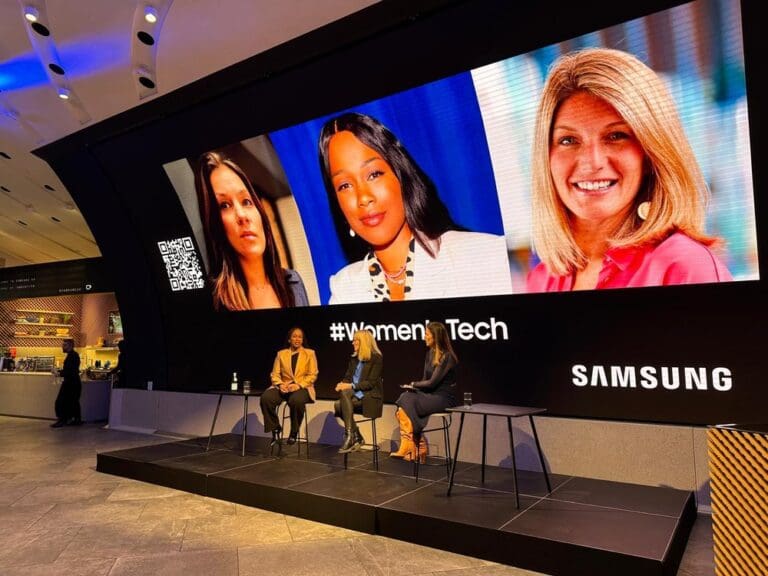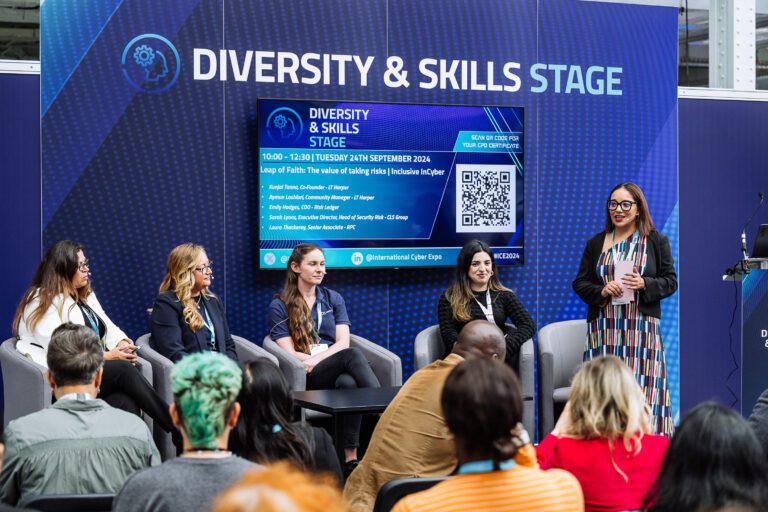A staggering 92% of women aged 18-25 admit to not being able to name a famous woman in tech, according to research from Samsung Electronics.
Furthermore, 12% mistook Alison Hammond as a tech pioneer and only 14% were able to correctly identify Ada Lovelace.
While 67% of 18-25-year-old women are considering a career in tech, 91% said there are barriers to even considering a role in the industry.
The research surveyed over 2,000 18–25-year-old women in the UK to understand young women’s attitudes toward tech careers.
Of those polled, 38% said they see non-tech roles such as HR, finance, and marketing as routes ‘in’ to the tech industry.
The young women noted that they were searching for roles that give them purpose (46%), enable them to make a positive change in the world (41%), do rewarding work (41%), and are looking for openings that give them the opportunity to make technology more inclusive to women (40%).
36% of the 18-25-year-old women were positive about the idea of a career in AI.
However, 34% said they didn’t learn enough about tech at school, and 22% reported that they were steered away from such subjects at school or college by teachers.
“Technological innovation is front and centre and instead of being put off, or tuning out of the conversation, Gen-Z is actively engaged in these developments. With growing excitement, the next question is how can employers and educators break down the barriers to entry and facilitate action to close the gap between intention and action?”, said Annika Bizon, Marketing and Omnichannel Director at Samsung UK.
“We must be the ones to rally together, to enable the next generation to take practical steps to pursue meaningful careers.”
The biggest influences on Gen Z women include family (57%) and friends (34%), but also social media influencers (19%), rather than their teachers (18%), according to the research.
Tanya Weller, Marketing Director at Samsung UK and Ireland, said: “There is clearly an appetite from young women to pursue a career in tech, but we all need to step up to help these women realise their ambitions – it’s the combined effort of schools, universities, and workplaces to actively break down barriers, and support and inspire the next generation of talent into a thriving career in tech.”
“We need robust role models that the young women of tomorrow can look up to as a source of inspiration, to stop and think ‘I can do that too’. Or perhaps even, ‘I can do better’.”
“We all have a place in tech. Working in tech isn’t just about being able to code – it’s about so much more. Tech is home to diverse people with eclectic experiences in design, computer science, linguistics, humanities, history and much more,” said Sharmadean Reid, Founder of The Stack World.
“Paths are being formed, but what’s clear is that we need more visible female role models in the industry that inspire the next generation to take those life-defining first steps.”






